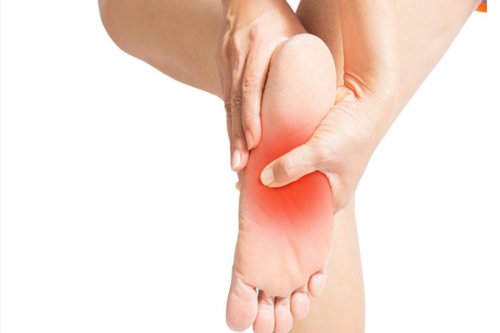Brain and ENT Clinic – Dr Lalit Mahajan In Nagpur & Dr Rachna Gangwani Mahajan In Nagpur
Neuropathy in Nagpur

Neuropathy in Nagpur, also known as peripheral neuropathy, is a condition that involves damage to or dysfunction of the nerves outside the brain and spinal cord. These peripheral nerves are responsible for transmitting signals between the central nervous system and the rest of the body, including muscles, skin, and internal organs.
Autoimmune Diseases:
- Conditions like rheumatoid arthritis, lupus, and Guillain-Barré syndrome may result in neuropathy.
Heredity:
- Some people may have a genetic predisposition to developing neuropathy.
Types of Neuropathy
Peripheral Neuropathy:
- Peripheral neuropathy is a broad term encompassing various conditions that involve damage to the peripheral nerves, which are outside the brain and spinal cord. Causes include diabetes, infections, trauma, and exposure to toxins.
Diabetic Neuropathy:
- A common complication of diabetes, diabetic neuropathy occurs due to prolonged high blood sugar levels. It can affect nerves throughout the body, leading to symptoms such as numbness, tingling, and pain, often starting in the feet and legs.
Autonomic Neuropathy:
- Therefore, Autonomic neuropathy affects the nerves that control involuntary bodily functions, such as digestion, heart rate, and blood pressure. It can result from conditions like diabetes or other systemic diseases.
Carpal Tunnel Syndrome:
- Carpal tunnel syndrome is a type of compression neuropathy, where pressure on the median nerve in the wrist causes symptoms like pain, tingling, and weakness in the hand and fingers.
Alcoholic Neuropathy:
- Excessive alcohol consumption can lead to alcoholic neuropathy, causing nerve damage and symptoms like pain, weakness, and sensory disturbances, typically in the legs.
Guillain-Barré Syndrome:
- Guillain-Barré syndrome is an autoimmune disorder where the body’s immune system attacks the peripheral nerves, leading to muscle weakness, numbness, and, in severe cases, paralysis.
Charcot-Marie-Tooth Disease:
- Charcot-Marie-Tooth disease is an inherited disorder that affects the peripheral nerves, leading to muscle weakness and atrophy, primarily in the feet and lower legs.
Hereditary Neuropathies:
- Various genetic or hereditary neuropathies exist, such as Friedreich’s ataxia, which affects coordination and leads to sensory loss.
Idiopathic Neuropathy:
- Idiopathic neuropathy refers to cases where the cause of nerve damage is unknown. It may present as peripheral neuropathy with symptoms like pain, numbness, and tingling.
Common Causes of Neuropathy
Diabetes:
- Therefore, One of the most common causes, as high blood sugar levels can damage nerves over time.
Alcohol Abuse:
- Thus, Excessive alcohol consumption can lead to nutritional deficiencies and nerve damage.
Infections:
- Once, Viral or bacterial infections, such as Lyme disease, shingles, and HIV/AIDS, can cause neuropathy.
Trauma or Injury:
- Thus, Physical injuries, accidents, or repetitive stress on nerves can lead to neuropathic symptoms.
Toxins and Medications:
- Since, Exposure to certain toxins or side effects of medications can damage nerves.
Symptoms of Neuropathy
The symptoms of neuropathy can vary depending on the type of nerves affected and the underlying cause. Common symptoms include:
Numbness or Tingling:
- Thus, Often starting in the toes or fingers and spreading upward.
Burning or Shooting Pain:
- Persistent or intermittent pain, which can be severe.
Muscle Weakness:
- Difficulty with coordination and muscle strength.
Sensitivity to Touch:
- Thus, Even light touch can be painful for some individuals.
Loss of Reflexes:
- Once, Reflexes may be diminished or absent.
Autonomic Symptoms:
- Changes in blood pressure, heart rate, digestion, and bladder control.
Treatment of Neuropathy
Medications:
- Thus, Pain relievers, anti-seizure medications, and antidepressants may be prescribed.
Physical Therapy:
- Exercises to improve muscle strength and coordination.
Managing Underlying Conditions:
- Controlling blood sugar levels in diabetes, addressing nutritional deficiencies, and managing autoimmune diseases.
Pain Management Techniques:
- Firstly, Heat or cold therapy, massage, and transcutaneous electrical nerve stimulation (TENS) may help alleviate symptoms.
Lifestyle Changes:
- once, Adopting a healthy lifestyle, including a balanced diet and regular exercise, can support overall nerve health.
